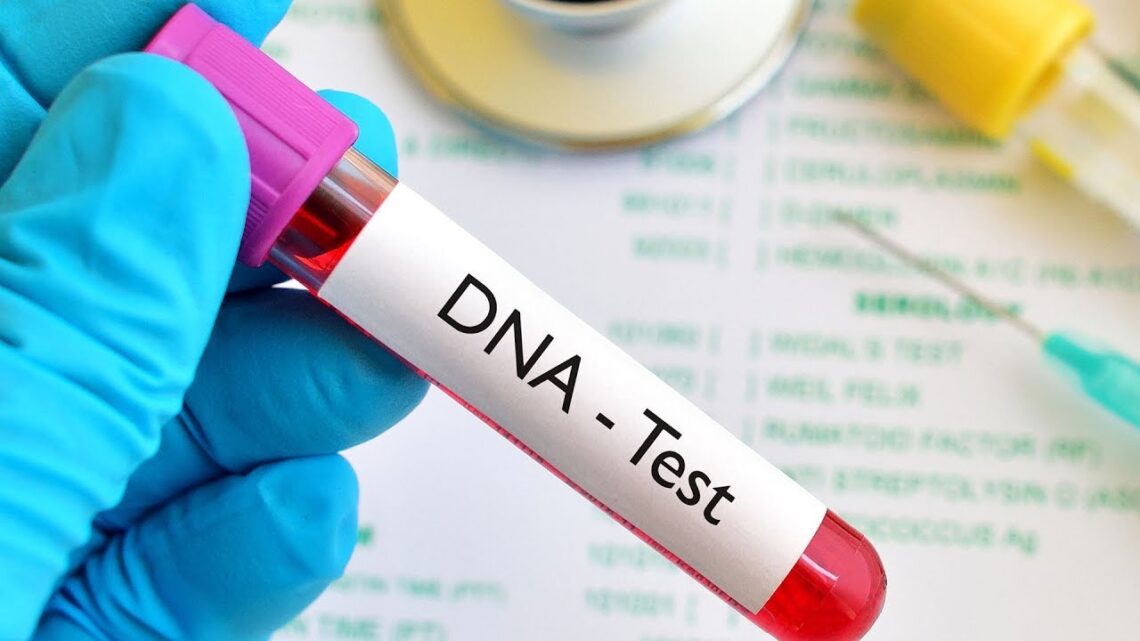
What is a DNA Test? The Power and Implications of Testing
DNA testing is a beacon of clarity, answering questions that have long eluded us. It’s like peering into the genetic playbook of life itself, unlocking a treasure trove of information about who we are, where we come from, and what lies ahead.
Let’s embark on a journey through the twists and turns of DNA testing, exploring its uses, advantages, and the necessity it holds in unraveling the enigma of paternity fraud.
Trending Now!!:
What Is a DNA Test?
A DNA Test, also referred to as genetic testing or DNA analysis, is a scientific procedure used to scrutinize an individual’s genetic composition. DNA Test’s full meaning is the deoxyribonucleic acid test.
It delves into precise segments of an individual’s DNA to pinpoint distinctive genetic markers that differentiate one person from another. These markers, inherited from an individual’s biological parents, persist unchanged over their lifespan.
Performing a DNA test typically involves several steps:
- Sample Collection: The first step is to collect a DNA sample. This can be done using various methods, such as swabbing the inside of the cheek, collecting a blood sample, or using saliva samples.
- DNA Extraction: Once the sample is collected, the DNA must be extracted from the cells. This is usually done by breaking open the cells to release the DNA and then purifying it to remove contaminants.
- DNA Amplification: In many cases, the amount of DNA obtained from the sample is too small for analysis. To overcome this, a process called polymerase chain reaction (PCR) is often used to amplify or make copies of specific regions of the DNA.
- DNA Analysis: The amplified DNA is then analyzed using various techniques, such as gel electrophoresis or DNA sequencing. These techniques allow scientists to examine specific DNA regions and identify genetic variations or markers unique to each individual.
- Interpretation: Finally, the results of the DNA analysis are interpreted to determine the individual’s genetic information. This information can be used for various purposes, such as determining paternity, identifying genetic diseases or conditions, and studying human evolution and population genetics.
Uses of DNA Testing
Imagine a powerful tool that can decipher the intricate code of your genetic makeup with pinpoint accuracy. That’s DNA testing for you. From settling paternity disputes with the precision of a master detective to uncovering ancestral tales buried deep in the sands of time, DNA testing wears many hats, each more fascinating than the last.
- Paternity Testing: One of the most common uses of DNA testing is paternity determination. By comparing the genetic profiles of a child and a potential father, DNA testing can conclusively establish biological parentage with an accuracy rate exceeding 99.9%.
- Forensic Identification: Law enforcement agencies use DNA testing to match genetic material collected from crime scenes with suspects or known individuals. This application has revolutionized criminal investigations and played a pivotal role in solving cold cases.
- Ancestry and Genealogy: DNA testing has empowered individuals to trace their genetic heritage and unravel familial connections across continents and generations. Companies offering direct-to-consumer genetic testing kits provide insights into ancestral origins and familial migration patterns.
- Medical Diagnostics: DNA testing is crucial in diagnosing genetic disorders, predicting disease susceptibility, and guiding personalized medical treatments. Genetic screening can identify individuals at risk for hereditary diseases, enabling proactive healthcare interventions.
Advantages of DNA Testing
Let’s face it; DNA testing is the real deal. Not only is it freakishly accurate (we’re talking accuracy rates that would make Sherlock Holmes jealous), but it’s also as gentle as a kitten’s purr. No needles, no blood, just a simple swab or spit sample, and voila! You’re on your way to genetic enlightenment.
- Accuracy: DNA testing boasts unparalleled accuracy in identifying genetic relationships, with error rates approaching zero when performed by accredited laboratories using validated methodologies.
- Non-Invasive: Many DNA testing methods, such as buccal swabs or saliva samples, are non-invasive and painless, making them suitable for individuals of all ages, including infants.
- Legal Admissibility: DNA test results are widely accepted as admissible evidence in legal proceedings, including family law cases, immigration applications, and criminal trials, providing irrefutable proof of biological relationships.
- Confidentiality: Confidentiality safeguards ensure that individuals’ genetic information remains private and protected, mitigating concerns about unauthorized access or misuse of sensitive data.
DNA testing is like your best legal buddy, always ready to back you up in court. Need to prove your paternity beyond a shadow of a doubt? DNA testing has your back, my friend. And wait to get me started on the confidentiality factor. Your genetic secrets are safe and sound, locked away tighter than Fort Knox.
The Dark Side of DNA Testing:
But hey, it’s not all rainbows and unicorns in DNA testing. Sometimes, those test results pack a punch harder than a heavyweight boxer. Emotions run high, relationships get rocky, and remember the hefty price tag that comes with some DNA testing services.
- Emotional Impact: DNA testing results, particularly those related to paternity, can have profound emotional repercussions for individuals and families, potentially leading to strained relationships and psychological distress.
- Ethical Dilemmas: Ethical considerations arise concerning the collection, storage, and use of genetic data, including consent, privacy, and genetic discrimination.
- False Sense of Security: While DNA testing offers high levels of accuracy, false positives or inconclusive results are possible, leading to misunderstandings or unwarranted accusations.
- Cost: DNA testing services can be expensive, particularly through commercial laboratories or specialized medical facilities, limiting accessibility for individuals with limited financial resources.
And let’s not gloss over the ethical conundrums either. Who owns your genetic data? What happens if your DNA falls into the wrong hands? These questions keep ethicists up at night, pondering the Pandora’s box of genetic privacy.
Effects of DNA Testing
- Legal Resolutions: DNA testing provides definitive answers to paternity disputes, facilitating legal resolutions and ensuring the fair allocation of parental rights and responsibilities.
- Family Dynamics: DNA testing outcomes can reshape family dynamics, prompting individuals to reassess their identities, relationships, and sense of belonging within their familial units.
- Health Awareness: Genetic testing raises awareness about hereditary health risks, empowering individuals to make informed lifestyle choices, pursue early interventions, and engage in proactive healthcare management.
The Necessity of DNA Testing in Addressing Paternity Fraud
Paternity fraud, wherein a woman falsely identifies a man as the biological father of her child, underscores the critical need for DNA testing. DNA testing serves as a safeguard against paternity misattributions, protecting men from emotional and financial entanglements resulting from fraudulent claims of parentage.
DNA testing is indispensable in safeguarding individuals’ rights and preserving the integrity of familial relationships. It ensures biological certainty and upholds the principles of fairness and justice.
….and that’s a wrap
In conclusion, DNA testing has emerged as a powerful tool with far-reaching implications across various domains. While its uses are manifold and its advantages significant, DNA testing also presents challenges and ethical considerations that necessitate careful navigation.
DNA testing serves as a crucial safeguard in the context of paternity fraud, offering clarity, transparency, and accountability in matters of parentage determination. As the prevalence of DNA testing continues to rise, it is imperative to approach its applications with sensitivity, responsibility, and a commitment to ethical practice.


